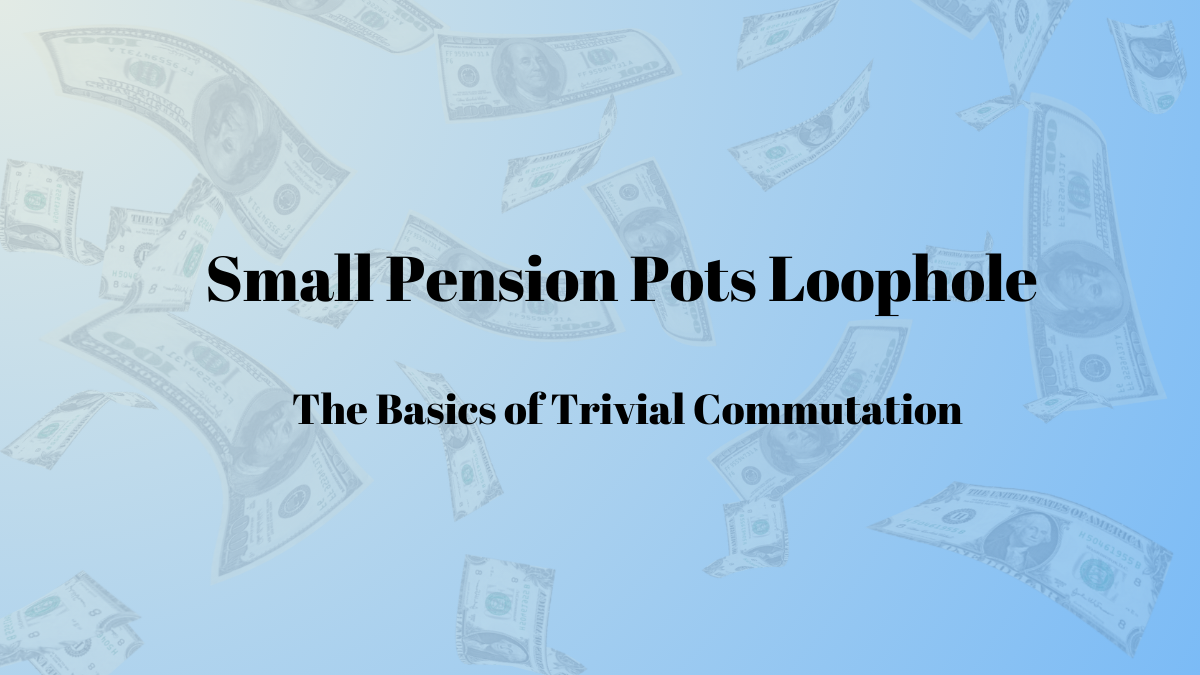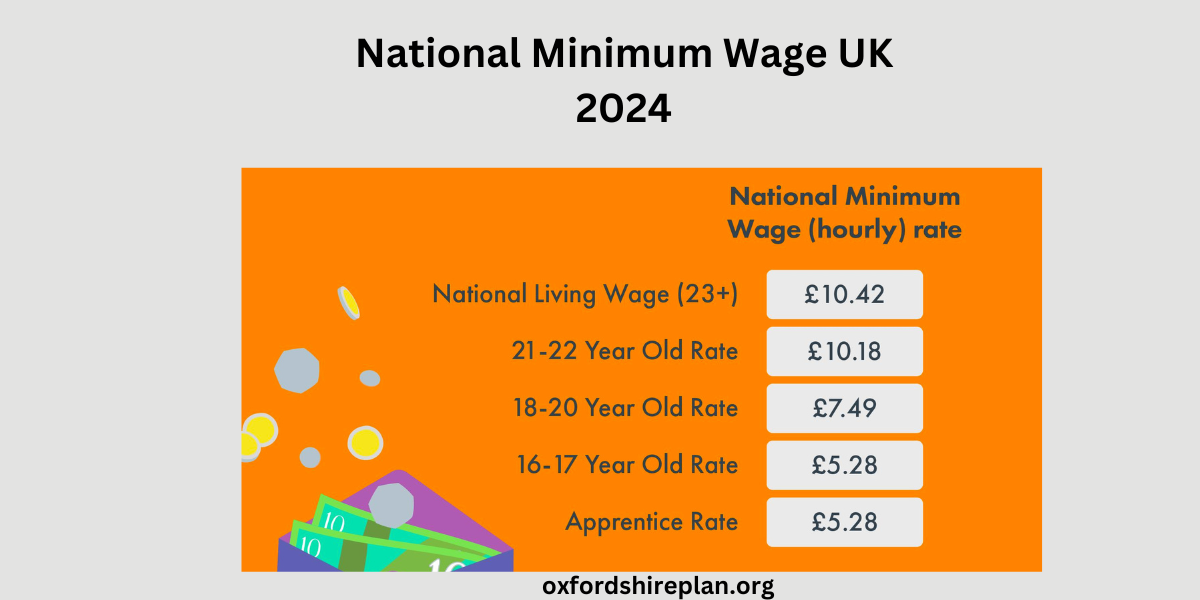When it comes to retirement, to know all about your pension options is important. In the UK, one option for those with smaller pensions is known as “trivial commutation.” Are you curious to know all about small pension pots loophole? If so, you are on right place here. This might sound not very easy, but it is actually a simple concept that can be beneficial under the right circumstances. Let us talk about more about small pension pots loophole and similar concetps for your understanding:
Contents
- What is Trivial Commutation?
- Trivial commutation – rules
- Who Qualifies for Trivial Commutation?
- How Does Trivial Commutation Work?
- What are the tax implications of trivial commutation?
- Why Consider Trivial Commutation?
- How can I calculate my tax liability for a trivial commutation?
- Things to Keep in Mind
- Conclusion
- FAQs
- What is a small pension pots loophole?
- What does trivial commutation mean?
- Who can opt for trivial commutation?
- How much of the lump sum is tax-free?
What is Trivial Commutation?
Trivial commutation is a process that allows you to take your entire pension as a lump sum instead of receiving regular pension payments. This option is only available if the total value of all your pension savings is relatively low.
Trivial commutation – rules
The rules for trivial commutation of pension benefits are specific. Here are the important points:
- Eligibility: You must have reached the normal minimum pension age, meet the ill-health condition, or have a protected pension age under the scheme paying the lump sum.
- Value Limit: The total value of your pension rights across all registered pension schemes must not exceed £30,000.
- Commutation Period: If the commutation period began on or after 27 March 2014, the commutation limit is £30,000.
- Taxation: As of 6 April 2023, there is no longer a lifetime allowance (LTA) charge. Instead, there will be a charge to income tax on the amount over the LTA, at your marginal rate.
Who Qualifies for Trivial Commutation?
To qualify for trivial commutation, you must meet certain criteria:
- You must be at least the normal minimum pension age, which is 55, or meet the ill-health condition if you are younger.
- The total value of all your pension pots must not exceed £30,000.
- You must have some available lifetime allowance left. This is the total amount you can build up in pension benefits over your lifetime without incurring extra tax charges.
How Does Trivial Commutation Work?
If you decide to take your pension as a trivial commutation lump sum, here is what happens:
- Valuation: Your pension provider will value your pension rights on a specified date, known as the nominated date.
- Payment: If the total value is within the limit and you meet the other conditions, you can receive your pension as a lump sum.
- Taxation: The lump sum is subject to taxation. The first 25% is usually tax-free, and the remaining 75% is taxed at your marginal rate.
What are the tax implications of trivial commutation?
Trivial commutation refers to the process of converting a small pension pots loophole into a lump sum payment. In the UK, if the total value of an individual’s pension rights is not more than £30,000, they may be able to take the whole pension as a lump sum, known as a trivial commutation lump sum.
Here are some key points regarding the tax implications:
- Taxation of the Lump Sum: As of the 6 April 2023, there is no longer a lifetime allowance (LTA) charge. Instead, there will be a charge to income tax on the amount over the LTA, at the individual’s marginal rate.
- Conditions: To qualify for a trivial commutation lump sum, the individual must have reached the normal minimum pension age or meet the ill-health condition, among other requirements.
- Tax-Free Portion 25% of the lump sum can be taken tax-free, and the remaining 75% is subject to income tax at the marginal rate OF an individual.
- PAYE: Any pension amount that is trivially commuted is taxed through the Pay As You Earn (PAYE) system for the tax year in which the payment is made.
Why Consider Trivial Commutation?
There are some reasons why trivial commutation might be appealing:
- Simplicity: Managing a single lump sum can be simpler than dealing with multiple small pension pots loophole.
- Flexibility: You have the freedom to use the lump sum as you see fit, whether that is investing it, paying off debts, or funding a retirement dream.
- Tax Efficiency: Taking a lump sum could be more tax-efficient, especially if you can keep the taxable portion within lower tax bands.
How can I calculate my tax liability for a trivial commutation?
Calculating your tax liability for a trivial commutation involves a few steps. Here is a simplified process:
- Determine the Total Value: Confirm that the total value of all your pension rights is within the trivial commutation limit, which is currently £30,000.
- Calculate the Tax-Free Portion: Generally, 25% of the trivial commutation lump sum can be taken tax-free.
- Calculate the Taxable Portion: The remaining 75% of the lump sum is subject to income tax at your marginal rate.
- Apply PAYE: The taxable portion is processed through the Pay As You Earn (PAYE) system in the tax year the payment is made.
Things to Keep in Mind
Before you opt for trivial commutation, there are a few important points to consider:
- No Going Back: Once you have taken your pension as a lump sum, you cannot change your mind. It is a one-time decision.
- Impact on Benefits: The lump sum could affect your entitlement to means-tested benefits.
- Financial Planning: It is important to think about how the lump sum fits into your overall retirement plan.
Conclusion
Trivial commutation can be a useful option for those with smaller pension pots. It offers a way to access your pension savings in a flexible and potentially tax-efficient manner. However, it is a significant decision that should be made with careful consideration and, ideally, with the guidance of a financial advisor.
Remember, situation of everyone is different, and what works for one person may not be the best choice for another. If you are considering trivial commutation, make sure to talk all the pros and cons and tale professional help or advise if needed.
FAQs
What is a small pension pots loophole?
A small pension is a pension pot that is relatively low in value. In the UK, there are specific rules that allow you to take small pensions as a lump sum instead of regular retirement income.
What does trivial commutation mean?
Trivial commutation is a term used when you convert your entire pension into a one-time cash payment. It is called ‘trivial’ because it applies to small amounts that would not make much difference if paid out as regular income.
Who can opt for trivial commutation?
Generally, if you are 55 or older and your total pension savings are less than £30,000, you might be able to take it all as cash under trivial commutation rules.
How much of the lump sum is tax-free?
You can usually take 25% of your pension pot tax-free. The remaining 75% is taxed as income.
Read More:
- BR Tax Code: A Complete Guide
- A Hidden Gem in Your Paycheck: The 1263L Tax Code
- Is Accounts Receivable An Asset?
- Best Cash ISA Rates for over 60s: A Guide to Tax-Free Savings
- Free Wills Month 2024: A Guide to Making Your Will
- Understanding the UK Emergency Tax Code and How to Claim It
- Is Shared Ownership Worth It?

I am a dedicated lifestyle and fashion enthusiast, always looking for the latest trends and timeless styles. With a flair for creativity and a passion for self-expression, I provide fresh insights and tips on elevating everyday living and personal style.
















